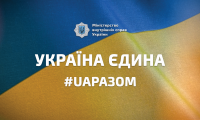
With the assistance of the European Union Advisory Mission, the Kharkov National University of Internal Affairs conducted a training course on community policing, in which representatives of the patrol police and district inspectors from the Lugansk and Donetsk regions took part.
The subject of training at the current stage is quite relevant. After all, the stability and law and order in the region and the authority of the government as a whole depends on how effectively the interaction between the executive authorities, local government and law enforcement bodies is established. This event contributes to the development of an effective mechanism for interaction of local police, authorities and territorial communities in ensuring proper public order and security, protecting the rights and freedoms of citizens, the interests of society and the state against unlawful attacks.
During the training, participants exchanged their views on improving interaction with the population, told about specific examples from their own practice, modeled certain situations to solve certain problems. And they came to the common opinion that the police, and first of all, the local police officers and patrol officers should cooperate as closely as possible with the society. The level of credibility in the police is the main criterion for assessing the effectiveness of the activities of police bodies and units
During the training it was noted that in the modern conditions of police activity the concept of interaction has a more progressive meaning, and its organization is proposed on the basis of partnership relations. This time, considerable attention was paid to the issues of control methods and issues of management within the collective.
Certificates of participation in the training were given by the first pro-rector of the Kharkov National University of Internal Affairs, Lieutenant Colonel of police Dmytro Shvets and the adviser/trainer on community policing of the European Union Advisory Mission Peter Wilson.